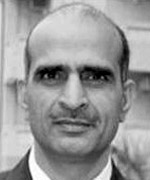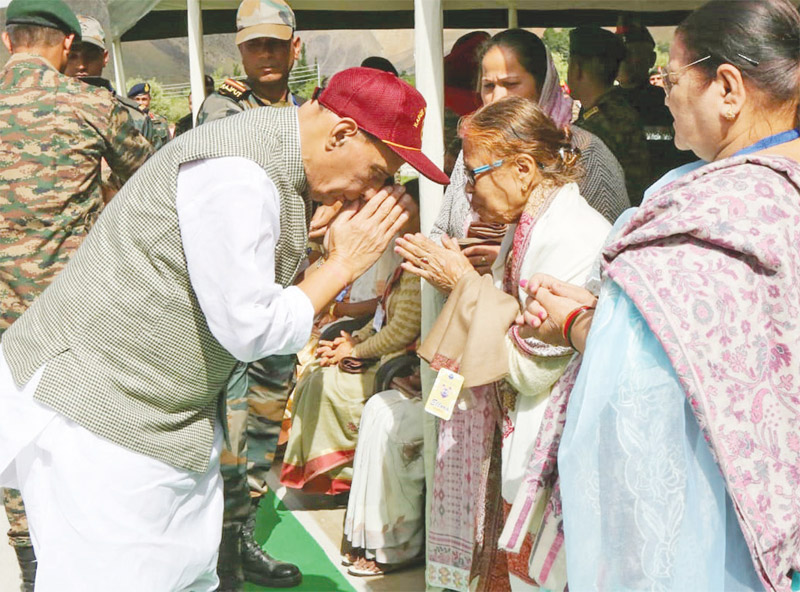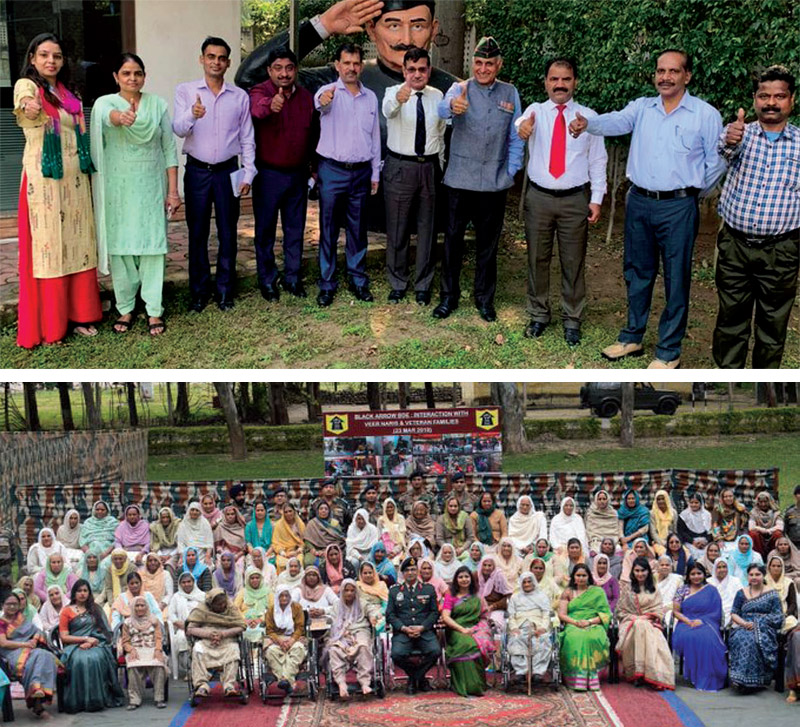Private hospitals emplaned with ECHS /CGHS/ESIC exploiting loophole to further their business
 Col Narinder Singh Dahiya (retd)
Col Narinder Singh Dahiya (retd)
Last week I had the opportunity to pay a visit to inquire about the well-being of Ms Shobha (name changed), a widow of a veteran admitted in a private hospital at Sonipat (Haryana). She is almost 90 years old and is drawing a family pension. She is a beneficiary of the Ex-servicemen Contributory Health Scheme (ECHS). She has been bed ridden for almost a year because of a number of ailments. Her frail form rests gently under a thin hospital blanket, providing some comfort to her weakened state. The room is quiet, except for the soft hum of medical equipment monitoring her vital signs and providing necessary support. The rhythmic sound of the heart monitor and the gentle rise and fall of her chest reminded me of the delicate balance between life and the unknown.
Her once healthy body is frail, ravaged by illness and time. Wrinkles, once the roadmap of her life’s journey, now deepen with the weight of suffering and weariness. Her arms are bruised blue and swollen because of numerous injections, pricks for medical tests and cannula fixtures. The hospital room, once a place of hope and healing, has become a prison where she feels trapped, stripped of her dignity, autonomy and independence. Her vibrant spirit and energy have been sapped by the constant battle against pain and the indignity of her circumstances.
Her weary eyes, clouded with pain and fatigue, gaze listlessly into the distance. It seems that she is yearning for respite from the relentless torment that she has suffered. Every breath is a struggle for her. She probably silently prays for her elusive death and pleads with the medical staff to release her from the agony that life has become for her. The hospital staff and her close relatives try unsuccessfully to raise her spirits but their words lack conviction and provide her no respite.
It is a well-maintained hospital as per Tier-II city standards but some things about the hospital were very conspicuous and out of the ordinary. It is 200-bed hospital but has a strangely large number of Intensive Care Units (ICU) as compared to the normal wards. The hospital has more than 40 ICU beds. Obviously, the charges for ICU beds are substantially higher as compared to normal hospital beds but the difference in the medical care was not much for most of the patients admitted in the ICU ward. Strangely, most of the patients admitted in the hospital were very old /senior citizens. The third thing that was striking about the hospital was that almost all patients admitted in the hospital were ECHS/CGHS/ESIC beneficiaries. There were hardly any cash paying patients either in the Outpatient Department or even amongst those admitted in the hospital.
The website of the hospital revealed that it is being run by a corporate group having a chain of hospitals in the country. The group has 10 hospitals and nine of these hospitals are located in Tier-II/Tier-III towns of Haryana while the tenth hospital is located in a Tier-III town in Rajasthan. It appeared that the chain of hospitals has been set up to solely treat the beneficiaries of ECHS/CGHS/ESIC or other beneficiaries of medical insurance. It is the face of capitalist India where special facilities mushroom to meet special demands.

I was also struck by the noticeable absence of attendants for the patients admitted in the hospital. Even during the designated visiting hours, only a few people appeared to check on their loved ones. It seemed as though the family members of the patients had entrusted their dear ones to the hospital and had almost forgotten about their presence there.
In fact, the whole facility bore a look of an old age nursing home. This strange look and feel of the hospital triggered a chain of questions in me. Some of these thoughts are:
- Are we prioritising the longevity of veterans’ lives through the provision of free medical care, without considering their overall well-being and quality of life?
- Are there potentially unethical hospitals emerging, particularly in Tier-II and Tier-III towns, that exclusively cater to ECHS/CGHS/ESIC beneficiaries? And do these hospitals genuinely possess the necessary infrastructure and qualified staff to deliver the promised high-quality medical treatment, which is ultimately billed to the government? Does their medical advice meet the very high ethical standards expected of them?
- Are some of these hospitals working as old age homes for old and weak pensioner?
- Do some families view very senior citizens as mere sources of financial gain in their old age through their pension? Can their pension income become a burden for them as some family members attempt to prolong their lives as much as possible without caring for the wishes or well-being of the old sick patients?
- Does the treatment of serious heart disease or other severe ailments through complex surgeries or prolonged medical interventions, particularly in advanced old age, truly enhance the quality of life of a veteran, or does it often result in prolonging their suffering?
- Does a senior citizen beneficiary of medical insurance scheme have the autonomy and process available to him to refuse painful and lengthy medical treatments?
Being Mortal: Medicine and What Matters in the End is a book written by Atul Gawande, a renowned surgeon and author. In the book the author tries to answer some of these and other similar questions. This book was published in 2014. The book explores the challenges and dilemmas faced by doctors, patients and family members of patients with respect to aging, mortality and end-of-life care. In the book the author argues that modern medical system solely focuses on ensuring the longevity of a patient. The doctor’s main focus is on extending the life of a patient with little regard for the well-being and dignity of the patient.
He further argues that in modern medicine death is considered a failure of the medical system and its practitioners. Hence, doctors tend to prioritise safety and extending life often at the expense of quality of life. He challenges the prevailing mindset of viewing aging and death as medical failures, instead urging medical practitioners to embrace a more holistic approach that takes into account a patient’s desires and his life goals.
When Gawande’s father, who was a doctor himself, was diagnosed with a terminal illness, he made the conscious choice to forgo further treatment, opting instead for comfort care and focusing on improving the quality of his remaining time. This decision reflects the principle of patient autonomy and the recognition that quality of life can be prioritised over aggressive medical interventions. Gawande’s father’s choice highlights the importance of open and honest conversations about end-of-life care preferences. It is essential for individuals to have the freedom to make decisions aligned with their values, even if it means rejecting further treatment. Each person’s journey is unique, and respecting their autonomy in medical decision-making is crucial.
Do we extend this courtesy to our senior citizens, beneficiaries of ECHS/CGHS/ESIC? All very senior ECHS beneficiaries who are above 75 years of age are permitted to go to any panelled private hospital for treatment without taking any referral from the ECHS polyclinics. This has been done to ensure that the senior citizens are not troubled by running from pillar to post to get medical treatment. It seems that some private medical hospitals who are emplaned with ECHS /CGHS/ESIC are probably exploiting this rule to further their business. These private hospitals are more than happy to welcome senior beneficiaries of more than 75 years of age to their hospital and admit them in the hospital for treatment. Most of such patients are admitted in the numerous ICUs of the hospital where they are provided meals, medical and other care.
At the advanced age of 75 or more naturally most of the patient have some serious medical issues or afflicted with some disease. So, it is not difficult for the hospitals to justify carrying out numerous medical tests for them and to admit them in the ICU. This turns out to be a win-win situation for all the parties of machination. The patients are happy that they are being looked after in old age, much better than in their homes where they feel neglected and even sometime have to eagerly wait for their meals.

The family members of the patients are happy that they are relieved of the responsibility of looking after their aged parents and to feed them, at least for the time they are admitted in the hospital. The family members are also happy that their patient’s life is being extended and hence they will continue get the benefits of pension for longer time.
The doctors are happy to practice their trades on such patients for whose welfare very few people are actually concerned about and hence there is little pressure on them to treat the patients within a reasonable time. Private hospitals are happy to make a quick buck by presenting inflated bills. In this whole game it is the patient, a senior beneficiary who suffers as no one is concerned about his well-being and dignity of life. He is not even afforded an opportunity to express his views.
It is considered prudent that we should provide the senior ECHS beneficiaries an option to have a say in the decision of their end-of-life care. Such a system is in vogue in US. There, ‘Do Not Resuscitate’ (DNR) orders and corresponding bracelets are recognised and used in various healthcare settings to honour a person’s end-of-life wishes. The DNR medical alert bracelet or wristband worn by a person indicates his preference of not to be resuscitated in the event of a cardiac arrest or other life-threatening situations. These bracelets come in different colours and express the views of a patient when he is unable to do so himself. Typically, a DNR order is established based on the patient’s expressed wishes or through discussions with their healthcare proxy or designated decision-maker. The DNR order indicates that the person does not wish to receive cardiopulmonary resuscitation (CPR) or other life-sustaining interventions in the event of cardiac arrest or respiratory failure.
In the film Munna Bhai MBBS, Dr Asthana, a role played by Boman Irani comments, that “for a doctor a patient is nothing but a sick body that needs to be treated.” He further explains that such a viewpoint ensures that the doctor does not get emotionally involved with the patient and hence is able to conduct the treatment/surgery without his hands shaking. It seems that the private empanelled hospitals have taken this statement to their heart. For them the patient is nothing more than a sick body to be treated or to be kept alive and breathing for as long as possible. They conveniently forget that the sick body has a soul and its own free will.
This is not the case in advanced countries where people realise that medical science can now keep a patient alive on life support systems for a very long time without in any way contributing to the actual well-being of the patient. So, they have created a system of hospice care for terminally ill or patients in advanced age. Even Jimmy Carter, the 39th US president, was moved to hospice care on February 18, 2023, as per his wishes. The Carter Centre released a statement on that day to read, “After a series of short hospital stays, former US President Jimmy Carter today decided to spend his remaining time at home with his family and receive hospice care instead of additional medical intervention, the Carter family asks for privacy during this time and is grateful for the concern shown by his many admirers.”
It is therefore felt that ECHS should also cater for hospice care for the very senior ECHS beneficiaries who opt for the same. Hospice care focuses on the care, comfort and quality of life of a person with a serious illness who is approaching the end of life. Medical practitioners know at some point, it may not be possible to cure a serious illness. Sometimes even a patient may choose not to undergo certain treatments which is prolonged and painful for him and adds to his agony. Hospice is designed for such situations. The patient beginning hospice care understands that his or her illness is not responding to medical attempts to cure it or to slow the disease’s progress. Through hospice care the patient is afforded a painless and dignified life till his demise and he is saved from the agony of undergoing meaningless treatments and yearning for the elusive demise. Such hospice care should be provided at the homes of the patients who opt for the same.
In addition, it is recommended that the ECHS/CGHS/ESIC should only empanel such hospitals for treatment of the beneficiaries who at least make half their income through the treatment of cash-paying patients. This will not only ensure that only good quality hospitals are empanelled but also prevent unscrupulous elements form misusing the insurance schemes.
Every life is a unique tapestry, woven with threads of joy, sorrow and everything in between. A proud soldier or even his spouse would want to pass away from the world in peace in the loving presence of their near and dear ones in their own home built through their toil and effort. It is time that the ECHS gives this issue a serious thought.

